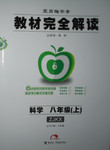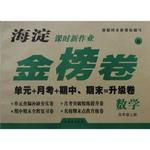题目内容
We live in the
“Computer Age”. Many years ago, computers couldn't do so much. They were big and expensive. They used a lot of energy. Only a few people were interested in them. Today, they are smaller and cheaper. They work faster than man and make fewer mistakes. They can remember much information. A computer can do with millions of problems in a few seconds. A person might need years to work out so many problems.People now use computers in nearly every kind of work: finding lost things, guiding
(指挥)trains and planes, managing(管理)telephone calls and traffic lights. Now there are many new kinds of computers. Some are very small and good for us to use in schools or at homes.Computers are very useful and the use of computers is growing. More computers mean more jobs for many people. Since people need to use and repair them.
根据短文内容,判断正
(T)误(F)。(1) Computers were small and cheap many years ago.
( )
(2) Computers become important because they work faster and make fewer mistakes.
( )
(4) People can use computers to find lost things.
( )
(4) More computers mean fewer jobs for many people.
( )
(5) Fewer people are interested in computer now.
( )
解析:

 王后雄学案教材完全解读系列答案
王后雄学案教材完全解读系列答案 海淀课时新作业金榜卷系列答案
海淀课时新作业金榜卷系列答案完形填空:(15分)
通读下面短文,掌握其大意,然后从短文后所给的A、B、C、D四个选项中选一最佳答案.
The word Sandwich(三明治)is 1 English word. Sandwich 2 an Englishman. He 3 about two hundred years 4 . Sandwich had 5 of money. He was very 6 . But he liked 7 play cards for money. He often played 8 day and all night. One time, he played twenty - four hours 9 stopping. He did not 10 the card table to eat. He asked his servant to 11 him some meat and 12 bread. He did not want to stop playing while he ate. He put the meat 13 two pieces 14 bread. In this way he could go on 15 cards.
From the name of this men, Sandwich, we have the word “Sandwich” today.
(1) A. the |
B. a |
C. an |
D. / |
[ ] |
(2) A. is |
B. are |
C. was |
D. were |
[ ] |
(3) A. was |
B. lived |
C. loved |
D. life |
[ ] |
(4) A. ago |
B. before |
C. after |
D. since |
[ ] |
(5) A. much |
B. a lot of |
C. lot |
D. lots |
[ ] |
(6) A. rich |
B. poor |
C. kind |
D. bad |
[ ] |
(7) A. for |
B. with |
C. by |
D. to |
[ ] |
(8) A. both |
B. all |
C. every |
D. only |
[ ] |
(9) A. with |
B. don't |
C. without |
D. not |
[ ] |
(10) A. live |
B. leave |
C. go |
D. come |
[ ] |
(11) A. take |
B. get |
C. fetch |
D. bring |
[ ] |
(12) A. any |
B. some |
C. a piece |
D. a |
[ ] |
(13) A. among |
B. in |
C. between |
D. on |
[ ] |
(14) A. for |
B. of |
C. on |
D. with |
[ ] |
(15) A. playing |
B. to play |
C. played |
D. play |
[ ] |
完形填空
I'm a newspaperman(新闻记者).I don't have much money, 1 I meet a lot of interesting people, some are 2 ; 3 are poor.I like my job very much and I'm good at it.I don't talk a lot, but I'm a good 4 .Perhaps I'm the best listener in the city, and I look stupid(愚蠢的)and soon I am getting a lot of 5 .
Let me 6 you 7 of how I got people to talk.I was writing an article(文章)about 8 in the city, how they live, 9 they do, and so on.So yesterday afternoon I went to the park, sat on a bench(长凳) 10 the sun, and waited.Soon an old woman came and sat near to me.She was carrying two large paper bags and an old handbag.I sat quietly 11 her about ten minutes, and 12 I took out some chocolate(巧克力)and I gave her a piece.After that, she 13 me about herself.She doesn't have a 14 .She and two friends sleep in the bus station.On warm days she comes to the park 15 her few clothes and things in two paper bags. 16 we went to an eating place 17 a cup of coffee and 18 to eat.I paid, of course.I asked her a few questions about TV and films she was 19 .I gave her a dollar.Then, I 20 her in the park, went down to the office, and wrote the story for my article.
(1) A.because |
B.but |
C.so |
D.if |
[ ] |
(2) A.old |
B.young |
C.happy |
D.rich |
[ ] |
|
(3) A.others |
B.another |
C.the others |
D.the other |
[ ] |
(4) A.writer |
B.reader |
C.listener |
D.learner |
[ ] |
(5) A.money |
B.news |
C.things |
D.time |
[ ] |
(6) A.make |
B.talk |
C.write |
D.give |
[ ] |
|
(7) A.a story |
B.an example |
C.a place |
D.a piece of news |
[ ] |
|
(8) A.young girls |
B.young people |
C.old people |
D.old men |
[ ] |
(9) A.how |
B.what |
C.when |
D.why |
[ ] |
(10) A.in |
B.under |
C.below |
D.down |
[ ] |
|
(11) A.besides |
B.beside |
C.near |
D.far away from |
[ ] |
(12) A.when |
B.after |
C.then |
D.so |
[ ] |
(13) A.spoke |
B.said |
C.talked |
D.told |
[ ] |
|
(14) A.work |
B.friend |
C.home |
D.living place |
[ ] |
|
(15) A.to wear |
B.to put on |
C.with |
D.to dress |
[ ] |
(16) A.Lately |
B.Later |
C.Late |
D.Laterly |
[ ] |
(17) A.to |
B.with |
C.at |
D.for |
[ ] |
(18) A.something |
B.nothing |
C.everything |
D.anything |
[ ] |
|
(19) A.pleased with |
B.interested in |
C.angry with |
D.surprised in |
[ ] |
(20) A.left |
B.carried |
C.brought |
D.took |
[ ] |
完形填空
Plants are very important 1 things. Life could not go 2 if there were no plants. This is because plants can make food from air, water and sunlight. But animals and man cannot 3 so. Animals get their food by eating plants and 4 animals. Man gets its food by eating plants and animals too. 5 animals and man 6 plants in order to 7 . This is why we find that there are so many plants around us.
If you look 8 at the plants around you, you will find that there are many types of plants. Some plants are large, 9 others are small. 10 plants are green. There are two sorts(种类)of plants: flowering plants and non-flowering(不开花的)plants.
Flowering plants have roots(根),stems(茎),leaves, flowers and fruits(果子). 11 all the trees around us are flowering plants. Flowering plants 12 make seeds(种子). The sends 13 by the fruits. Some fruits have one seed, some have two, three or four, and some have many seeds. But a few fruits have no seeds 14 . 15 example of a fruit 16 seeds is banana fruit.
Most non-flowering plants do not grow from seeds. They grow from spores(孢子). Spores are small. Some spores are 17 small and 18 that they can float(漂浮) 19 the air. We may say that spores are quite different from seeds. When these spores 20 on wet and shady(阴凉的)places, they usually grow into plants.
1. A.live |
B.lively |
C.living |
D.lived |
[ ] |
2. A.through |
B.over |
C.down |
D.on |
[ ] |
3. A.hope |
B.do |
C.think |
D.make |
[ ] |
4. A.another |
B.the other |
C.other |
D.others |
[ ] |
5. A.Though |
B.And |
C.But |
D.So |
[ ] |
6. A.need |
B.want |
C.find |
D.have |
[ ] |
7. A.grow |
B.live |
C.work |
D.eat |
[ ] |
8. A.careful |
B.clear |
C.carefully |
D.clearly |
[ ] |
9. A.while |
B.when |
C.since |
D.as |
[ ] |
10. A.A great deal of |
B.Lot of |
C.More |
D.Most |
[ ] |
11. A.Between |
B.Except |
C.Almost |
D.Hardly |
[ ] |
12. A.should |
B.can |
C.may |
D.must |
[ ] |
13. A.are born |
B.are hidden |
C.are stored |
D.are kept |
[ ] |
14. A.any longer |
B.any more |
C.at last |
D.at all |
[ ] |
15. A.The |
B.An |
C.A |
D.For |
[ ] |
16. A.without |
B.with |
C.full of |
D.of |
[ ] |
17. A.too |
B.very |
C.so |
D.much |
[ ] |
18. A light |
B.active |
C.little |
D.strong |
[ ] |
19. A.on |
B.in |
C.by |
D.above |
[ ] |
20. A.put |
B.move |
C.place |
D.fall |
[ ] |